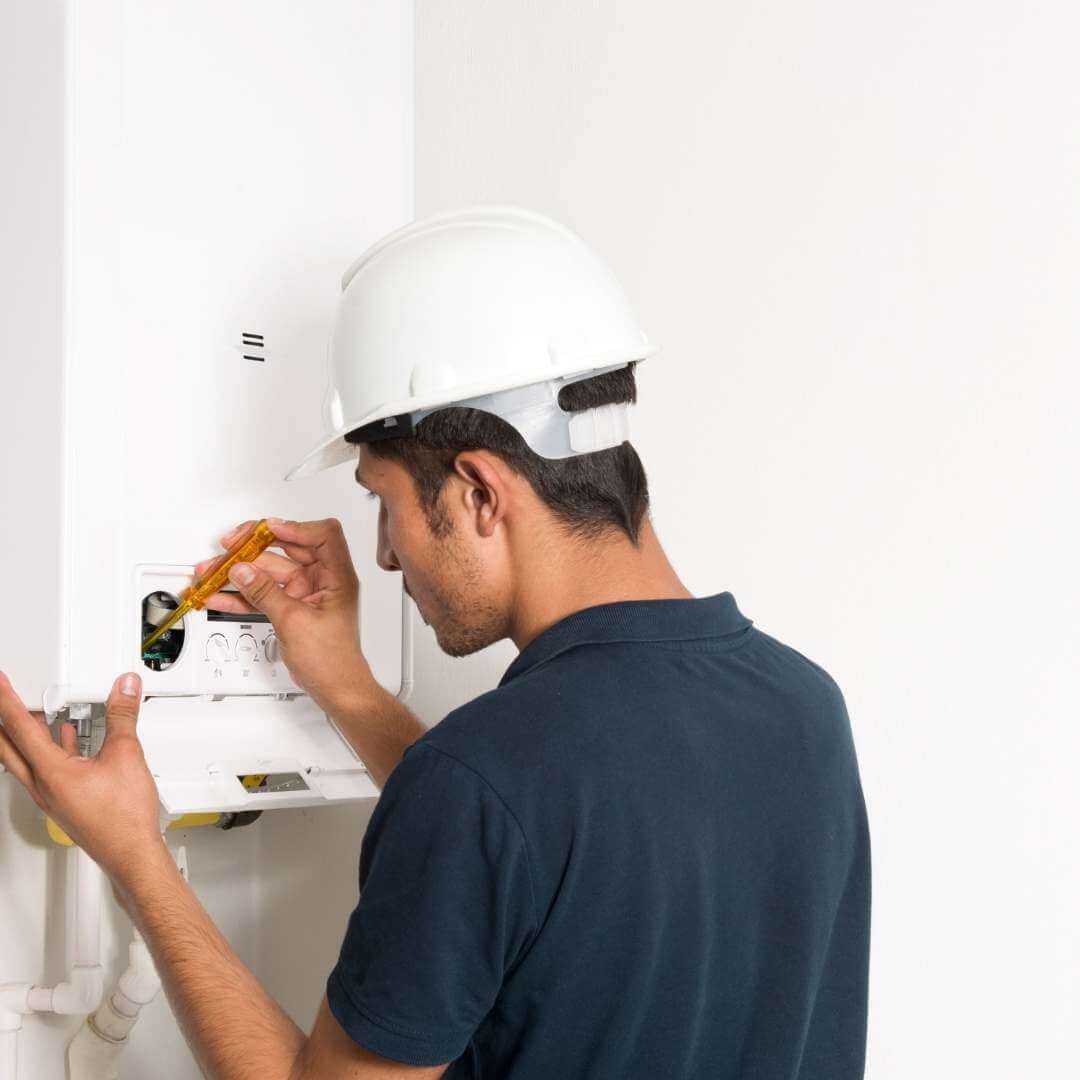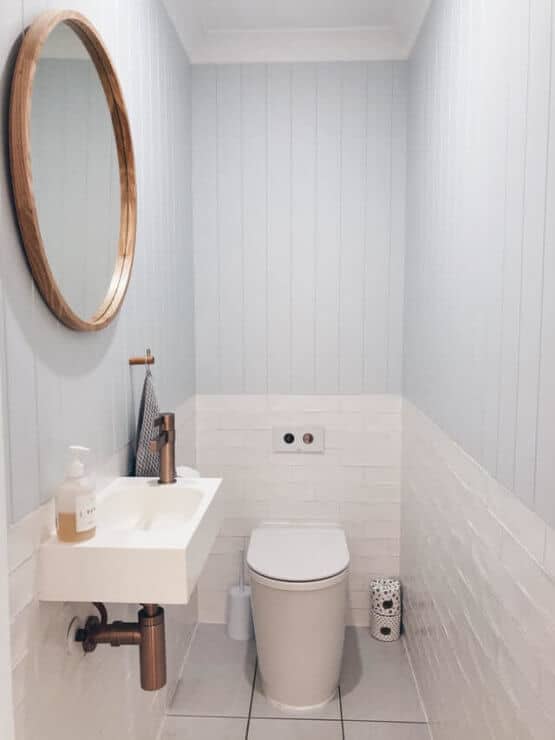Every household has a water heater. This item is necessary for keeping your shower warm throughout the year. However, if you miss some water heater failure signs, it can also be very dangerous.
For example, a leaky water heater can cause severe water damage on your floors and walls alike. This could even end up with a severe flood. Repairing such issues could cost you thousands of dollars!
A leaky water heater can also lead to many health issues, as the moisture leads to the growth of mold, mildew, and bacteria.
Also, if a water heater’s power source fails, this could lead to a potentially deadly situations. No one wants to witness first-hand what happens when you combine electricity with water!
To keep yourself and your family safe, it’s important to be able to recognize some water heater failure signs. This way, you’ll know how to react and how to deal with possible future trouble.
7 Water Heater Failure Signs

If you have a water heater, here are some water heater failure signs:
- Aging signs
- Leaking
- Rusty water
- Hot water shortage
- Unstable water temperature
- Strange noises
- The constant need for expensive repairs
Whether you have a tankless gas heater or the one with the tank, these failure symptoms will stay the same and you need to be on the lookout for them.
We’ll explain them all in detail.
Aging Signs
Household appliances aren’t built to last forever. They have a life span, just like most other products. A decent water heater will most likely last around a decade before you need to replace it. Hard water can be damage the heater, so using a water softener can help it last longer. Good maintenance will also help extend its lifespan.
Of course, not everyone can be entirely certain how old their water heater is. Luckily, there is a serial number that you can find on the upper part of the water heater. The serial number can help you find out the production date. The first two digits will let you know what the last two numbers of the production year are. For example, if the serial number starts with 08, this means your water heater was manufactured in 2008.
Leaking
Leaks are among the major water heater failure signs. They are also something that can cause a lot of damage.
You may notice these leaks both on, behind, and around your water heater. The water can drip from pipes or the tank itself. You will sometimes also notice poodles of water underneath the unit. Having your water heater leaking is one of the main water heater danger signs that require you to call a professional for help. Don’t try to deal with this on your own, unless you are a licensed plumber.
Keep in mind that leaking doesn’t necessarily have to be one of the signs water heater is failing. You might simply need to replace the connection, or that the temperature/pressure relief valve is faulty. However, if the vault is what’s causing the issue, you still need to contact the plumber ASAP. Otherwise, your unit might overheat.
The leaking might also be a sign of a cracked or corroded water tank. However, once a tank is damaged, the entire unit should be replaced.
Rusty Water
If the water from the faucet isn’t clear, this can be one of the water heater failure signs, among many other things. Rust deposits can build up inside the water heater tank, and this can color the water. This is especially the case if colored water or metallic odor from the water happens at the same time as leaks.
These mineral deposits can buildup and clog the pipes, preventing water flow and damaging the key heater components. This is a clear sign that’s it’s time to let your old water heater go.
Hot Water Shortage
If your water heater fails to provide you with hot water, this is a bad omen. Believe it or not, the same goes for if your water heater provides you with hot water too fast. If the water heater doesn’t have pleasantly warm water, but instead only gives you hot or cold water, this is an issue.
Both of these problems signify that there is something wrong with the heating component. This is one of the most noticeable ways how to tell if your electric water heater is going bad and it needs replacement.
One of the ways you can extend your heater’s life is to conduct a flush of the water tank once a year. This can especially help you if you live in an area with hard water, which can be damaging to your water heater.
Unstable Water Temperature
Let’s face it. A few things are more annoying than having the water temperature change on its own while showering. This, however, can also be a sign of a much larger issue. If you have to adjust the temperature way too much during shower time, chances are your water heater is sending you an SOS message.
If water changes from hot to cold without any water, even if there is still hot water inside your heater, this isn’t a good sign, and chances are you need to purchase a whole new unit.
Keep in mind that this isn’t the same as when you have a water heater that keeps turning off. This can also mean that a certain component is broken, and it doesn’t have to be one of the water heater failure signs.
Strange Noises
If your water heater is making sounds such as:
- Popping
- Rumbling
- Cracking
Chances are, it’s trying to tell you that it’s very close to failure. As your unit becomes older, the sound will become more noticeable. They are usually the result of sediment buildup inside the tank. As the minerals harden, they form layers inside the tank. When these layers thicken, the heater needs more power to do its job properly, so it won’t be as efficient.
As the tank and the components inside it wear out, the cracking sounds become more and more obvious. Also, the buildup itself can produce popping noise as they move inside the tank.
It would be helpful if you would flush the tank at least once a year to get rid of any buildup. Using a water softener can also help. However, if these noises become louder, it’s time you become aware of these warning signs of how the water heater going out.
Constant Need For Expensive Repairs
Even the fairly new unit needs some regular maintenance. These tune-ups shouldn’t be costly. However, as your water heater becomes older, various parts can wear out. This means the maintenance will become more expensive.
These expenses can become too much for you to handle. If it cost you more just to maintain the existing heater compared to just getting a new one, it’s time to say goodbye to the old unit. This will be not just safer, but also better for your pockets.
Can Water Heater Explode?

There are plenty of types of water heaters, and some appear safer than others. Because of this, you may wonder can water heater explode.
The truth is that every type of water heater can explode. Even a gas water heater failure, or a malfunction on the solar-powered heater, can lead to a dangerous explosion. Sure, not all units have the same chance of exploding, but this can always happen. This is why regular maintenance and understanding water heater failure signs are essential for your safety.
Should I Replace My Water Heater Before It Fails?

Some homeowners think there’s no need to replace their water heater until it fails, as this will only cost them more money. In some way, this is true. Buying a new product while you can still use your old one seems unreasonable.
However, here are four reasons why you should still replace your water heater beforehand:
- Once your water heater dies, you don’t have enough time to do your research and purchase the best product for you.
- If you allow your water heater to die, you’ll be left without hot water until you find the replacement unit – and this can last.
- A broken water heater could cause severe damage that will end up being more expensive than a whole new unit.
- A malfunctioned heater will also make your utility bills higher, especially if there’s a leak.
The Bottom Line
Even the best products out there have their lifespan. No matter what kind of water heater you have, you are bound to replace it eventually. If you wait until your existing unit dies, you are risking not just significant damage to both you and your household, but you can also expect higher utility bills.
If you notice any of these telltale water heater failure signs, you should always try to replace your heater as soon as possible. Even though this might seem like a hasten decision, it would be much worse if you were to wait until your heater malfunctions entirely.

Michael Davis is a heating & plumbing expert who currently works as independent contractor in SC. He also writes for Plumbertip.
For almost 10 years he worked on various plumbing tasks across South Carolina.


